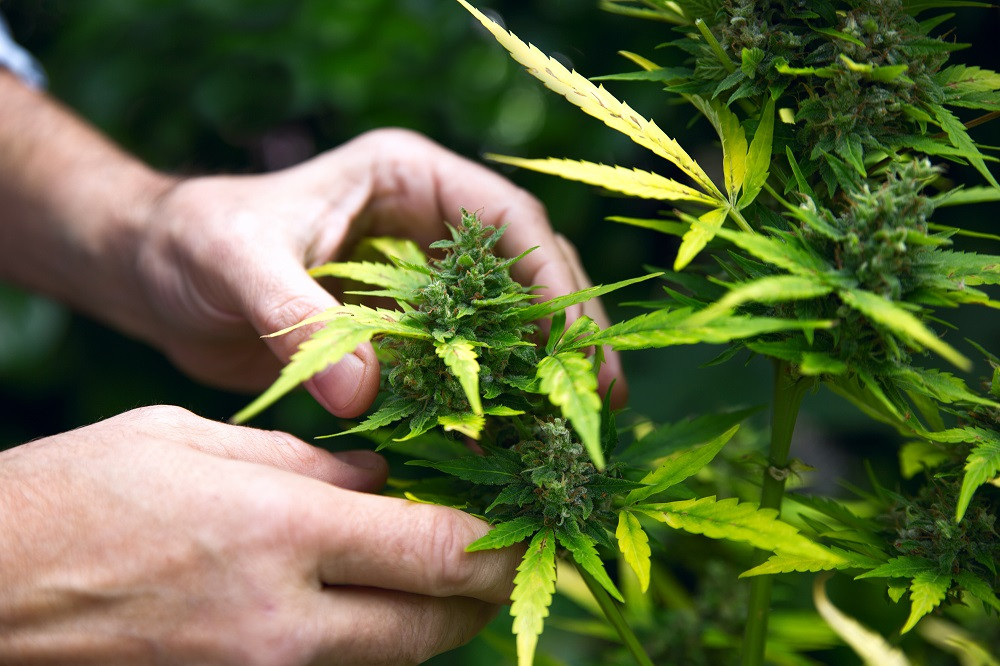Popular Reads
Top Results
Can't find what you're looking for?
View all search resultsPopular Reads
Top Results
Can't find what you're looking for?
View all search resultsActivists, civil groups call for decriminalizing marijuana for medical use
Change text size
Gift Premium Articles
to Anyone
A
group of activists under the Advocacy Coalition for Narcotics Usage for Medication along with several other civil society groups have called for the decriminalization of marijuana for medical treatments.
The plea came following the arrest of Reyndhart Siahaan, a 37-year-old man from East Jakarta, in November for allegedly consuming marijuana at his boarding house in Manggarai Barat regency, East Nusa Tenggara (NTT).
Reyndhart's lawyer, Herie CN, said his client used marijuana to relieve the pain caused by spinal cord compression, a disease he has suffered from since 2015.
"My client has had problems in his spinal nerves since 2015 and the disease recurred in 2018," Herie told kompas.com on Monday.
"He learned from the internet that boiled cannabis water could help ease his pain."
Reyndhart was charged under Article 127 of Law No. 35/2009 on narcotics, which carries a sentence of one year in prison.
The coalition argued that the law should not restrict the usage of narcotics for medical treatment.
"Although Article 8 of the Narcotics Law forbids the use of type-1 narcotics for medical purposes, the original intent of the law is to ensure the availability of narcotic drugs for medical services. [..] The criminalization of people who need narcotics for medication clearly contradicts the main purpose of the existence of narcotic drugs, which is for the health of all Indonesians,” the group said in a statement on Wednesday.
Read also: 420 blaze it? Here’s what you need to know about Indonesia’s marijuana law
The statement also mentioned a similar case in 2017, when a 36-year-old man named Fidelis Arie was arrested by the Sanggau Narcotics Agency (BNN) in West Kalimantan for using marijuana to treat his terminally Ill wife.
In August 2017, Fidelis was sentenced to eight months of imprisonment and a fine of Rp 1 billion (US$71,159) subsidiary to one month's confinement.
During his court proceedings, Fidelis' wife, who suffered from syringomyelia, died due to lack of medication.
Syringomyelia is a rare disease where a fluid-filled cyst or cavity forms within the spinal cord. This cyst, called a syrinx, can expand and elongate over time, destroying the spinal cord.
The coalition explained that the right to medical service as a basic human right was stipulated in Article 28 H of the 1945 Constitution.
"Learning from Fidelis and Reynhardt's cases, it's time for Indonesia to open its doors and provide the possibility of using type-1 narcotics for medical use," the coalition said in the statement.
The coalition expressed hope that the panel of judges who dealt with Reynhardt's case could put forward his right to health and prioritize fundamental justice and legal utility. They also hope that the judges will free him of all charges.
"What Reynhardt did could be categorized as an emergency since marijuana effectively treated his illness. Article 48 of the criminal code says that those who commit a criminal offense due to emergency cannot be charged," the group continued.
The coalition also urged the government to reevaluate the ban on type-1 narcotics in medical fields and to conduct research on narcotics and marijuana.










